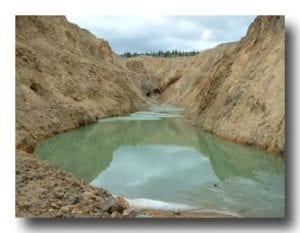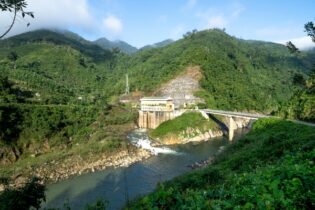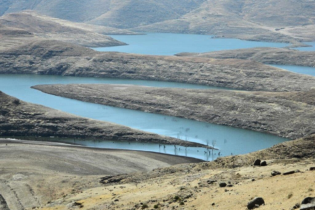As many as 46 mines are currently operating in South Africa without the requisite water licences, according to a statement by Shadow Minister of Water and Environmental Affairs, Gareth Morgan. Morgan said the number had been identified by the Minister of Water & Environmental Affairs, Edna Molewa, in response to a DA parliamentary question. Under the National Water Act, mines should not be continuing operations without this licence.
“Water is a critical resource in South Africa, and thus all users need to be correctly permitted in order to ensure the fair use and discharge of water. Mines currently operating without water licences include 12 mines in Mpumalanga, 12 in Gauteng, nine in KwaZulu-Natal and six in North West,” said Morgan in his recently released statement. According to Morgan, the DA has been monitoring the position of mines without water licences for over two years. “The pressure we have been placing on the Department of Water is working. In June 2010 there were 125 mines operating without water licences. At the end of 2011 there were 69 in this position, while in March 2012 there were 53 mines operating without water licences. Thankfully, the trajectory is downwards, although the rate of progress is slowing.” Morgan explained that under the current system a mine applies for a water licence after it has received a mining permit. It is therefore difficult to see how the Minister of Water and Environmental Affairs would have “the guts” to deny a mine a water licence after the mine has already begun operating, says Morgan. “The Minister and her Department have not attempted to close any mine down for operating without a water licence, which seems to suggest that, at least in some cases, the provision of a valid water licence is merely a formality and not a matter of substance.” Commendations dueMorgan added that although it goes without saying that the Department must move swiftly to eradicate the backlog, “ the Department must be commended for the relatively high number of directives and pre-directives it has been issuing in terms of the National Water Act to mines without water licences.”
The Shadow Minister went on to say that while on previous occasions when the DA asked for this information, “it was evident that the Department was not using the full toolbox of enforcement protocols it had at its disposal”, since 19 March 2012, the Department had issued nine directives and 14 pre-directives against the 50% of the errant mines currently operating without licences.
Additionally, a criminal case has also been opened in one specific instance. Criminal charges are a legitimate action among the available enforcement protocols, and according to Morgan, the Department should be using this option to a greater extent. “While it is pleasing that the situation is improving, the question still has to be asked: How are mines even allowed to begin operating if they do not have permission from the start to use water and then discharge it back into water courses? Where is the necessary coordination by the Department of Mineral Resources and the Department of Water?” questioned Morgan.
“While it is pleasing that the situation is improving, the question still has to be asked: How are mines even allowed to begin operating if they do not have permission from the start to use water and then discharge it back into water courses? Where is the necessary coordination by the Department of Mineral Resources and the Department of Water?” questioned Morgan.






